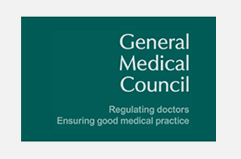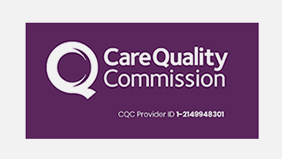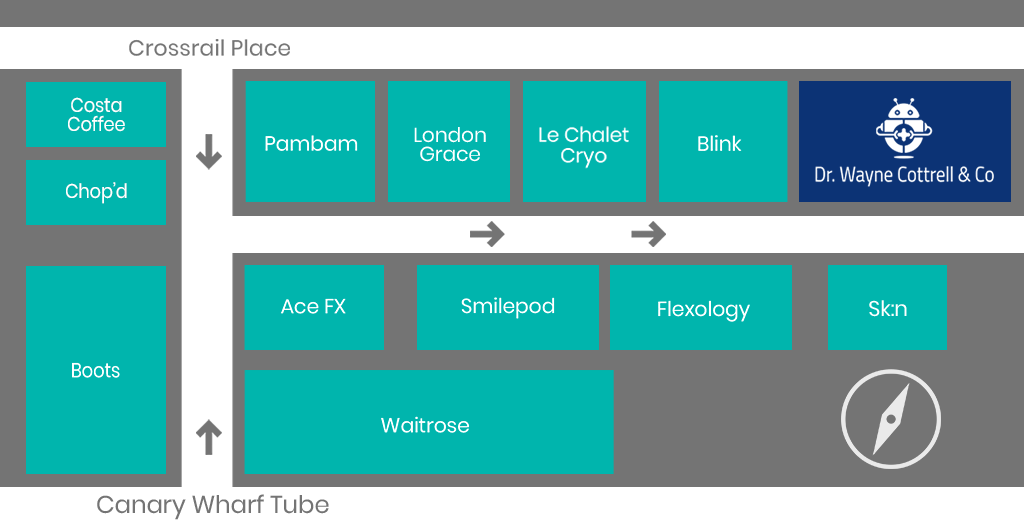Your Private GP and Sexual Health Clinic in Canary Wharf
CBT is a positive therapy, even when dealing with difficult and sometimes painful issues the focus is on finding a reassuring way forward
CBT – Cognitive Behavioural Therapy
Cognitive Behavioural Therapy is a talking therapy based on the concept that your thoughts, feelings, physical sensations and actions are interconnected. At times, negative thoughts and feelings can trap you in a negative cycle. CBT is an effective talking therapy used to treat a range of mental health conditions.
CBT considers emotional distress and behavioural difficulties and considers how these can arise from maladaptive or unhelpful cognitions. The patient is supported to identify problems collaboratively with the therapist and set goals, endeavouring to change cognitions and reducing distress and problematic behaviour.
What to expect
The process begins with an assessment. Following this, the treatment course usually lasts between 6 and 20 sessions, each lasting 50 minutes. Therapy aims to teach you to apply the skills and conceptualise what you have learned during treatment to your daily life. CBT is recommended by the National Institute for Health and Care Excellence NICE (2010)
Our in-house psychotherapist offers a complimentary 15-minute discovery call to see if this a best-fit therapy. You can book this directly through the website or speak to your GP.
Anxiety
Anxiety is the feeling of fear, worry, apprehension and dread. This can manifest itself through physical symptoms such as increased heart rate, hyperventilation, irritability, lack of concentration, insomnia, and muscle tension. It can be very specific, like social anxiety, where you have a fear of humiliation or embarrassment around people’s conversation, or through worry and remuneration – which is when you are repeatedly bothered by a thought or worry, for example, something bad happening to you or the people you are close to.
Panic disorder is a diagnosis given to someone who has experienced panic attacks for a period of 6 months and describes the fear and constant anxiety about having another one. Symptoms include irregular, rapid heartbeat, shortness of breath, fear of losing control, feeling that you are going to die and a sense of detachment.
Stress at work
The work environment can be the cause of many complex negative emotions, such as stress, where you feel tense, overwhelmed, worn out, and exhausted by too much pressure. Left unchecked, the long-term effects can be more severe, including anger, mood instability, procrastination, insomnia, and substance abuse.
Perfectionism is another trigger. The relentless strive for extremely high standards for yourself and others and using that to judge your self-worth. The fall out being the negative consequences of setting such high standards yet continuing to go for them despite the emotional cost to you. CBT (REBT) can address and help you to manage these feelings and also provide you with strategies to reduce your levels of stress and improve your self-esteem by building skills such as Assertiveness and how to deal with criticism and disappointment.
Anger & Depression
Anger can be helpful as it motivates us to do something to right an injustice, but it also has consequences, which can result in you thinking you have been treated unfairly or disrespected by others who have broken rules and expectations.
A lack of empathy and awareness of your anger’s impact on others. Aggressive body posture, attacking and arguing, hitting out, and shouting negatively affect your well-being, including shaking, sweating, stomach churning, heart racing, and red face.
Depression
Negative thinking is usually a prominent part of depression: the depressed person thinks negatively about their ongoing experiences and future. The content of these negative thoughts tends to centre on the theme of loss and failure to achieve.
Motivational. Apathy, loss of energy and interest.
Behavioural. Decreased activity, reduced coping, social skills deficits?
Cognitive. Negative thinking, indecisiveness, poor concentration.
Biological. Sleep disturbance, loss of appetite, decreased sexual interest.
If you recognise any of these feelings, be assured that CBT/REBT is a professionally recognised treatment with strong evidence base results reviewed by the National Institute for Health and Clinical Excellent (NICE).
ADHD
Attention deficit hyperactivity disorder (ADHD) is a condition that affects people’s behaviour. People with ADHD can seem restless, may have trouble concentrating and may act on impulse. Symptoms of ADHD can be discovered at an early age. However, some adults find a diagnosis at a later stage. Symptoms tend to improve with age. ADHD can be treated using medicine or therapy, but a combination of both is often best.
Treatment is usually facilitated by a paediatrician or psychiatrist – this is often overseen by the patient’s GP.
Can psychological therapies help ADHD?
CBT is supported by clinical results and research evidence showing that the therapy delivers real-world benefits for adults with ADHD. CBT intervenes to improve daily life challenges — procrastination, time management, emotional regulation and other common difficulties. The sessions and agendas are goal-focused to help the patient feel a sense of success.

MR GREG QUEE
B.Ed (Hons), AD Dip PD, PG Dip CBT, BABCP
Psychotherapist & Cognitive Behavioural Psychotherapist
Greg graduated with a First Class (Hons) in Education, as well as a PG Dip. in Inclusive Education with the Institute of Child Education and Psychology in Europe. After living and working in East Africa for many years, Greg returned to the UK, and whilst practising as a CBT therapist, he is also completing his PhD in an anxiety intervention for a neurological condition with the use of Virtual Reality.
Greg is a fully qualified CBT psychotherapist and has a wealth of experience supporting adults, young people and parents with a variety of mental health issues. Greg is trained as a high-intensity CBT therapist and is an accredited member of the British Association of Behavioural and Cognitive Psychotherapies (BABCP) Prov.
Greg’s ethos is using evidence–based therapy to help support and take care of the individual with a human approach.









